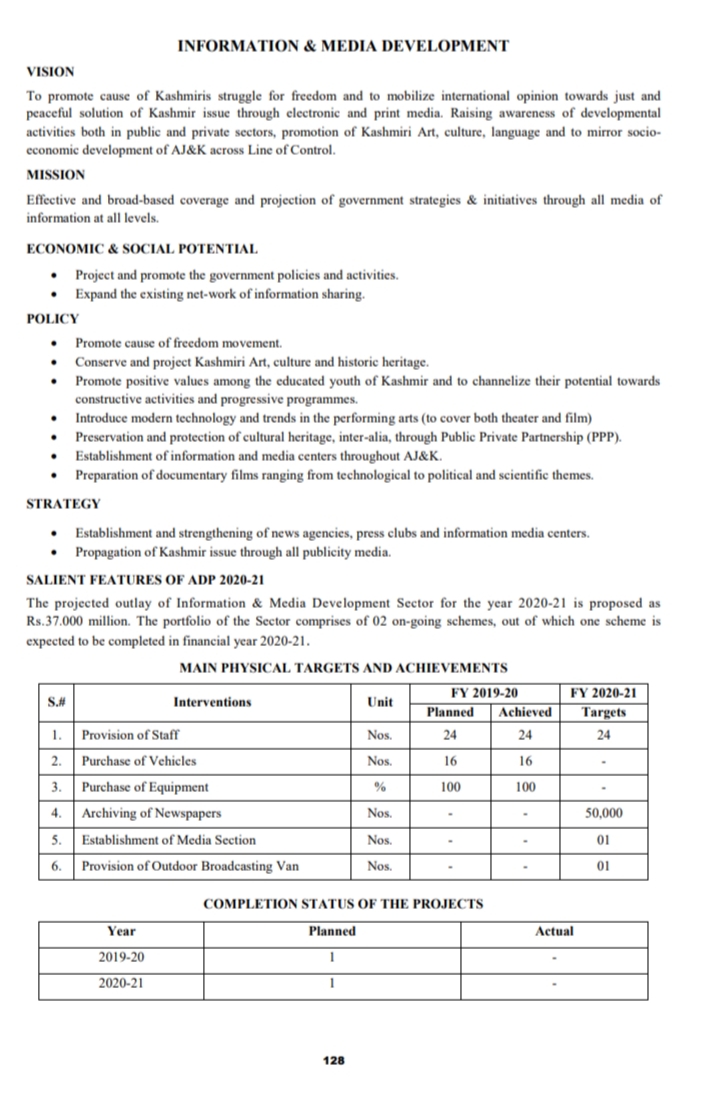Lest You Forget
While a humanitarian catastrophe was unfolding in Indian-administered Kashmir on August 5, 2019, with a potential threat of genocide, the government of Pakistan-administered Kashmir was busy exploiting the situation.
While a humanitarian catastrophe was unfolding in Indian-administered Kashmir on August 5, 2019, with a potential threat of genocide, the government of Pakistan-administered Kashmir was busy exploiting the situation.

Keeping with its track record, even during the 2019–2020 fiscal year, it misused development funds granted by Pakistan under the pretense of supporting the Kashmir cause.
These funds, meant for infrastructure development, were instead diverted to purchase 17 luxury vehicles for officials in the Information Department—misusing the sacrifices of Kashmiris in the Valley for personal and political gain.
The so-called project-titled Information & Media Development-claimed to strengthen departmental capacity but largely focused on furnishing offices with new furniture, curtains,air conditioners,outdated Digital Satellite News Gathering (DSNG) van, LCDs, & other aesthetic upgrades.
The suffering of Kashmiris was cynically used as a cover for bureaucratic indulgence. Even if some institutional improvements occurred, they did nothing to support or amplify the voices of the besieged population across the Line of Control.
On August 5, 2019, India unilaterally revoked Articles 370 and 35A of its constitution, effectively annexing Jammu and Kashmir at gunpoint. The region was stripped of its semi-autonomous status, divided into two union territories, and placed under direct rule from New Delhi.
Nearly 900,000 Indian troops were deployed, placing approximately 14 million Kashmiris under an unprecedented military siege. All forms of communication—including internet and phone services—were cut off, turning the region into what many described as a “graveyard of the living.”
In the months that followed, the Indian government issued over 4 million domicile certificates to non-Kashmiri Indians, intensifying fears of demographic change.
The U.S.-based organization Genocide Watch issued a formal genocide alert, warning that India had met the seven early warning signs and was progressing through the ten recognized stages of genocide.
Ironically, while Kashmiris faced an existential threat, the political elite of Pakistan-administered Kashmir chose to publicly distance themselves from the crisis unfolding in Indian-administered Kashmir.
By declaring themselves merely a “local authority” with no mandate to speak on behalf of the oppressed population—and then disappearing from the discourse—they effectively surrendered the people of Indian-administered Kashmir.
In doing so,they not only failed the people of Kashmir but also exploited their suffering to maintain political complacency & enjoy administrative luxury. The very people they distanced themselves from had their miseries used to justify the purchase of vehicles for officials.
What is even more troubling is that no one in this part of the world blinked an eye—regardless of which section of society they belonged to or what ideology they held.
This should serve as an eye-opener for the people of Indian-administered Kashmir, who must recognize the political apathy & abandonment they have been subjected to—even by those who took upon themselves the responsibility of representing them & claimed to do so for decades,
only to betray them. The reality, as revealed in 2019, is that it was never truly their cause, nor did they believe in it; rather, they used Indian-administered Kashmir for their own gains.
Given this betrayal, is there any reason left for the people of Indian-administered Kashmir to maintain any link with the political elite of Pakistan-administered Kashmir?
@CMShehbaz @GovtofPakistan @PakPMO @KhawajaMAsif @KhSaad_Rafique @sherryrehman @Mushahid @BBhuttoZardari @SenatorMushtaq @AonAbbasPTI
please unroll @UnrollHelper
• • •
Missing some Tweet in this thread? You can try to
force a refresh




